AFL
My mother, stolen against her will
Indigenous players become reflective when the Sir Doug Nicholls Round arrives each season.
For many, it’s an opportunity to discuss their mob, where they originate from, their language, the food we shared and the stories from the Dreamtime. It’s also a time for family.
My family’s story is sadly similar to that of many Indigenous Australians.
I wanted to learn more about my background a while back so I had a conversation with my mum, Kylie. Her family is from near Ceduna on the west coast of South Australia and her mob are the Kokatha people.
She was taken from them shortly after she was born.
Mum is a member of the Stolen Generation. It is estimated that between one-in-three and one-in-ten Aboriginal children were taken from their families between 1910 and 1970. My family were not exempt.
Mum was adopted out to two non-Indigenous parents who are my grandpa and nanna, Don and Paulene. Grandpa grew up in Port Augusta. Thankfully, he knew a lot of Aboriginal families and he kept mum involved in many events and community groups. But, in terms of direct family, there was no contact through her young childhood.
She eventually got to meet her biological family when she was 17. It was only by chance, and she’s very thankful that an organisation called Link-Up created this opportunity.
Link-Up assists Aboriginal and Torres Straight Islander people of the Stolen Generations to find their families. It’s geographically-based, and starts where the separation took place or thereabouts. They continue to help families to this day.
Because mum was adopted, I didn’t really get to meet that side of the family as much as I wanted growing up. We weren’t really involved. That meant missing out on learning about our Kokatha people and stories from the Dreamtime.
This upsets me. Mum was stolen against her will. Her culture was taken away from her.
Mum had a tough childhood, growing up with non-Indigenous parents and so many unanswered questions. There was a lot of racism in primary school and through her teenage years.
Mum felt a sense of emptiness. Not knowing who her Aboriginal family were made her feel lost. She said she felt like she had no identity. And for me it was difficult growing up knowing how much mum would have loved to have been raised by her Indigenous family and immersed in the culture of her people.
The connection you have with your family is irreplaceable and that was taken from my mum.
In saying this, I love my nanna and grandpa and everything they’ve done. They have been good parents to my mother and good grandparents to me. We are a tight-knit group.
My nanna and grandpa helped raised me and I couldn’t be more thankful. They have looked out for me unconditionally, taken care of me when I needed it and provided so much love.
For me, I am a product of two worlds.
I am proud of my Indigenous background, but also my non-Indigenous influences. All have played a part in developing me into the person I am today.
I have been able to meet some of my biological uncles, aunties and cousins. We see them around Christmas time and other holidays. Football has played a huge role in my connection with them. They come and watch me play games and wear the Crows colours. I know they’re proud of me.
It is great that, after everything mum went through, we still have a connection to our blood. That’s really important to me.
EDDIE, ART & THE MULIGAS
There is another family who have been influential in making me into the person I am, both on and off the field.
All of us Indigenous boys share a brotherhood. This isn’t about being at the same club as one another. It’s a bond that carries across the whole AFL. It’s really special.
It’s hard to explain, but I really feel that our connection is closer than any other relationship – and the glue to that connection is Eddie Betts. He’s been a father figure to all of us boys and his wife, Anna, has been like a mother.
Their house is another home for us. We go there and visit, hang out with Eddie and his kids and just sit there and talk about anything, from football to life in general.
Eddie and Anna have been around the AFL system for so long. They pretty know all the ins and outs. I feel like we can talk about anything with them. It’s a safe space. Nothing is too much for them and the support they have given us all – whether it’s after a bad loss, an injury or just a bad day in our lives – is constant. Their door is always open.
Eddie is a father, uncle, brother and mate all in one. And, most importantly, he’s a role model. I aspire to be like him.
He is an amazing father and someone the whole country can look up to, Indigenous and non-Indigenous, kids and adults, in Adelaide and around Australia. We are extremely lucky to have his family at our football club.

Away from football a lot of my teammates play golf, too many video games or watch movies. I’m a little bit different. I express myself through art.
This began back in my school days with my mates around Henley Beach. As many young men of that age do, we were getting up to a little too much trouble – boxing each other, staying out late at night and the general ‘rough boy’ stuff. There were three Indigenous boys and a few non-Indigenous ones in our group and it’s safe to say we needed something to cool us down.
Thankfully my mate’s mum, Liz Wauchope, had an art studio. She pretty much locked us in until we behaved. It turned out for the best.
She taught us how to paint on ceramics, canvases and silk and we all ended up loving it. So much so, we formed a group called the Muligas which translates to Young Men.
Mum was stolen against her will. Her culture was taken away from her.
We actually were pretty decent at it and began selling our art at the Festival Theatre in Adelaide. A career after footy? I’m not sure, but it’s a great way to express myself. I haven’t had a lot of time to do much art lately, which is probably a good thing, because less free time means more time on the field.
I’ve actually done a piece which the AFL showcased. It depicted how I viewed the AFL and the way it brings together cultures and nationalities. I am proud of it. I have Liz to thank for pulling us young troublemakers up and giving us the constructive outlet we needed.
One of my goals in the future is to design the Indigenous guernsey for the Adelaide Crows. That would be a dream.
WHAT INDIGENOUS ROUND MEANS TO ME
The release of the AFL fixture is always exciting for players. Most of the Crows would’ve first looked for the Richmond game – our chance to make amends for last year’s grand final defeat – then when we’d be playing Port and, yes, maybe even a cheeky look at when we will face former teammates.
For me, however, there’s something else as well.
The game I gear myself up for – the one in which I take more pride in wearing my club guernsey than any other – is the round which falls this weekend, Sir Doug Nicholls Round.
It is the opportunity to reflect on the achievements of a great man, not just in the game of Australian Rules Football but for Indigenous people generally.
Sir Doug was the first Aboriginal person to be knighted and was also the Governor of South Australia. That makes this round even more special for us at the Crows.
From a football perspective, he was also the first Aboriginal player to be selected to play for the state. He was shorter than most at five-foot-two but that didn’t stop him and, after spending time in the VFA, he joined Fitzroy in 1932. He finished third in the Brownlow a few years later.
His legacy, however, goes well beyond football.
He was a social worker, a minister, a pastor and the first Indigenous Australian to be the governor of a state. In 1962, he was awarded Victoria’s Father Of The Year for Outstanding Leadership in welfare work and for the example he set in furthering the cause of Indigenous Australians. An extraordinary man.
Sir Doug fought back from adversity and that is something I have taken great inspiration from in my own battles throughout my footy career.
One of my goals in the future is to design the Indigenous guernsey for the Adelaide Crows. That would be a dream.
It’s taken me five years to play 23 games for the Crows. That’s 23 out of a possible 158 games during that period. Last season was the final year of my contract and I knew I had a point to prove. I needed to play consistent, high-level football to earn another few years with the team I love.
And then it happened. I fell and tore my ACL in the first pre-season game of 2017. My knee was done. Like any player, I thought the worst. Damaged goods.
The Crows showed faith in me and, after initially being delisted, they signed me on as a rookie. That showed their commitment to my development and I feel I owe them by performing on the field.
Heading into this weekend, I’m about to play my eleventh consecutive game for the club. When you think about it, that’s almost half my career’s games in less than three months. The other half took six years. I am determined to keep it going.

I have taken the time to learn about Sir Doug and the resilience he showed and now I want to be able to emulate that. Not just in my game, but in life. I take pride in my resilience and how I have been able to turn bad situations into positive outcomes.
I am privileged to be playing in the Indigenous round.
We’ve come a long way as Indigenous people. There was a time where we weren’t allowed to play the game. Now, in 2018, our people are dominating the AFL. Buddy Franklin, Eddie Betts, Shaun Burgoyne and those of previous eras like Adam Goodes, Andrew McLeod and Nicky Winmar. It fills you with pride.
Pride is what I’ll feel when I pull on the Crows’ Indigenous guernsey on Sunday.
I am not just representing the Adelaide Crows and the AFL. I am representing my brothers and sisters, my uncles and aunties, my grandparents and my parents.
My people.
More about: Adelaide Crows | Buddy Franklin | Indigenous Australians | Sponsored
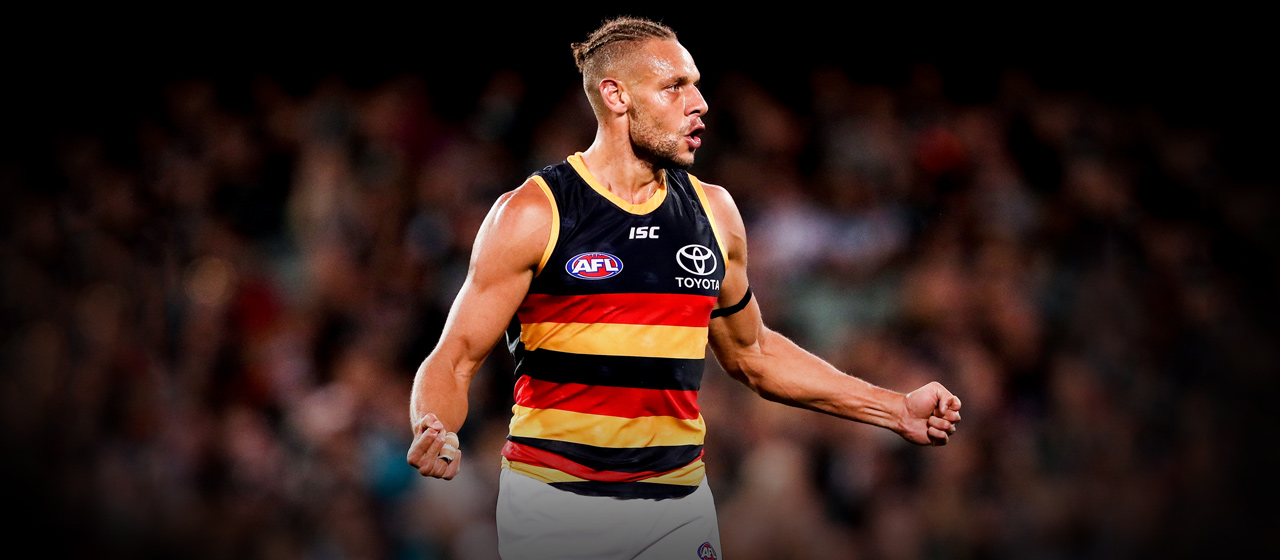
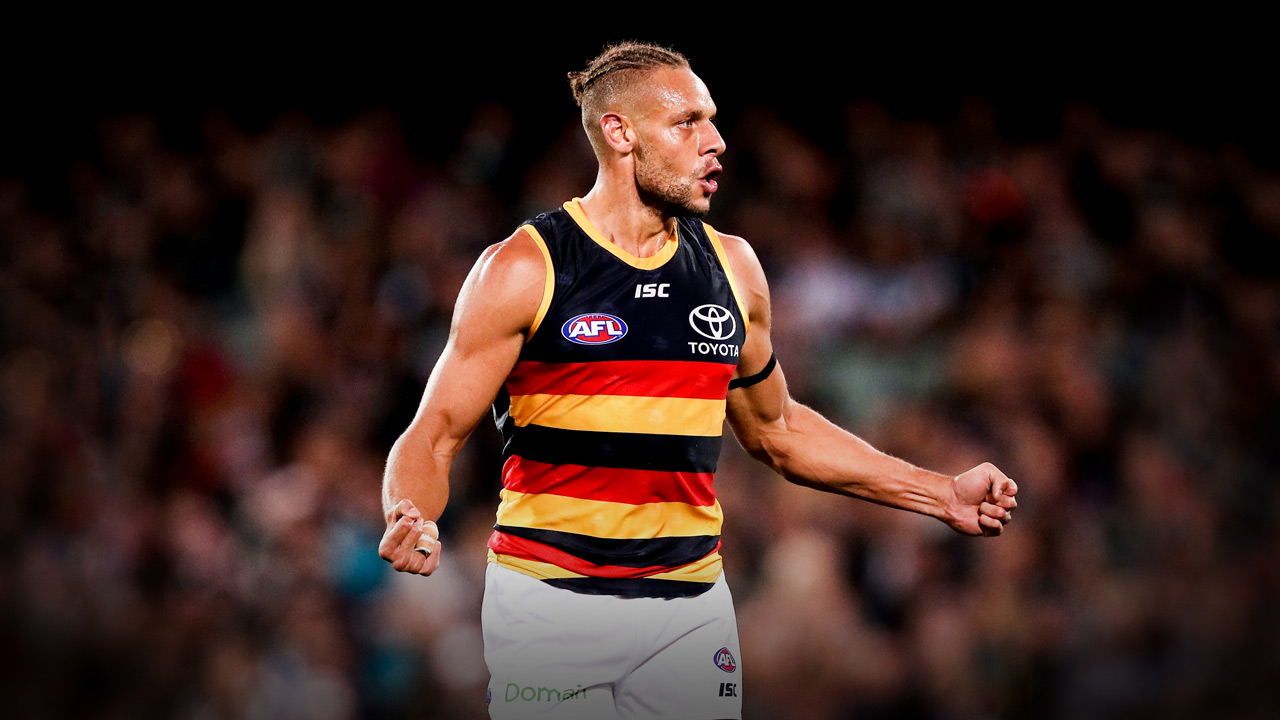
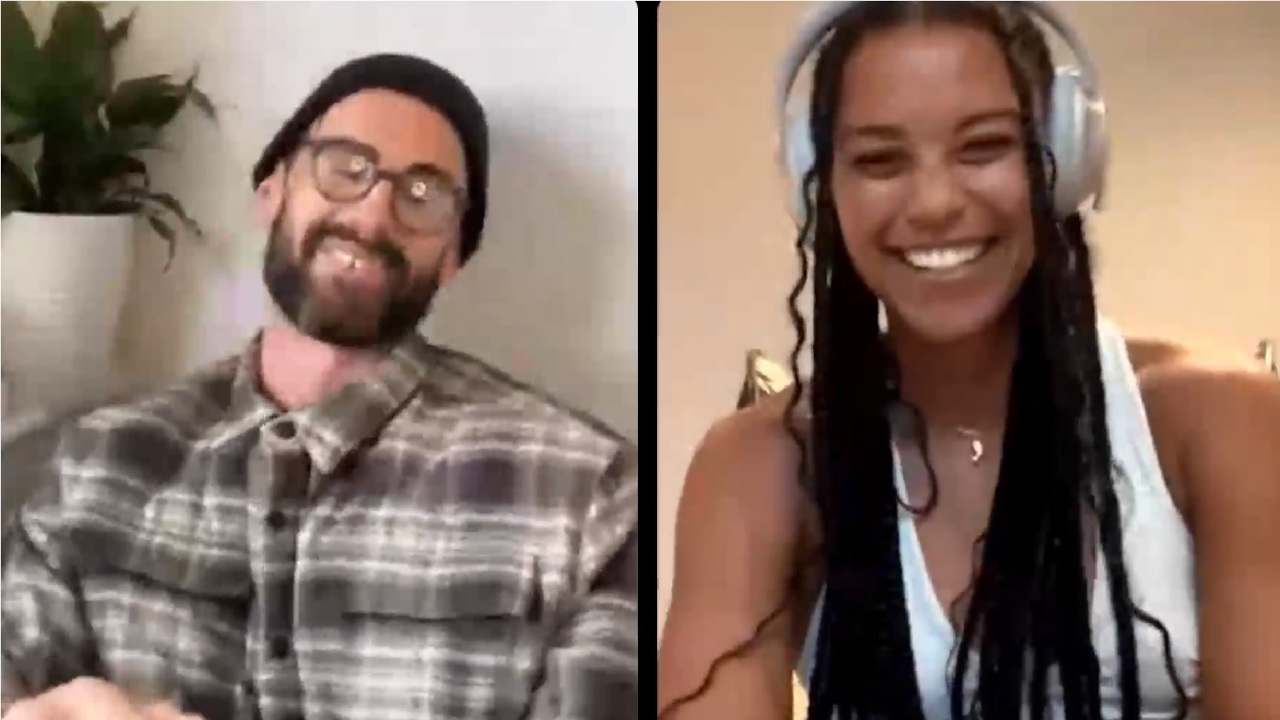
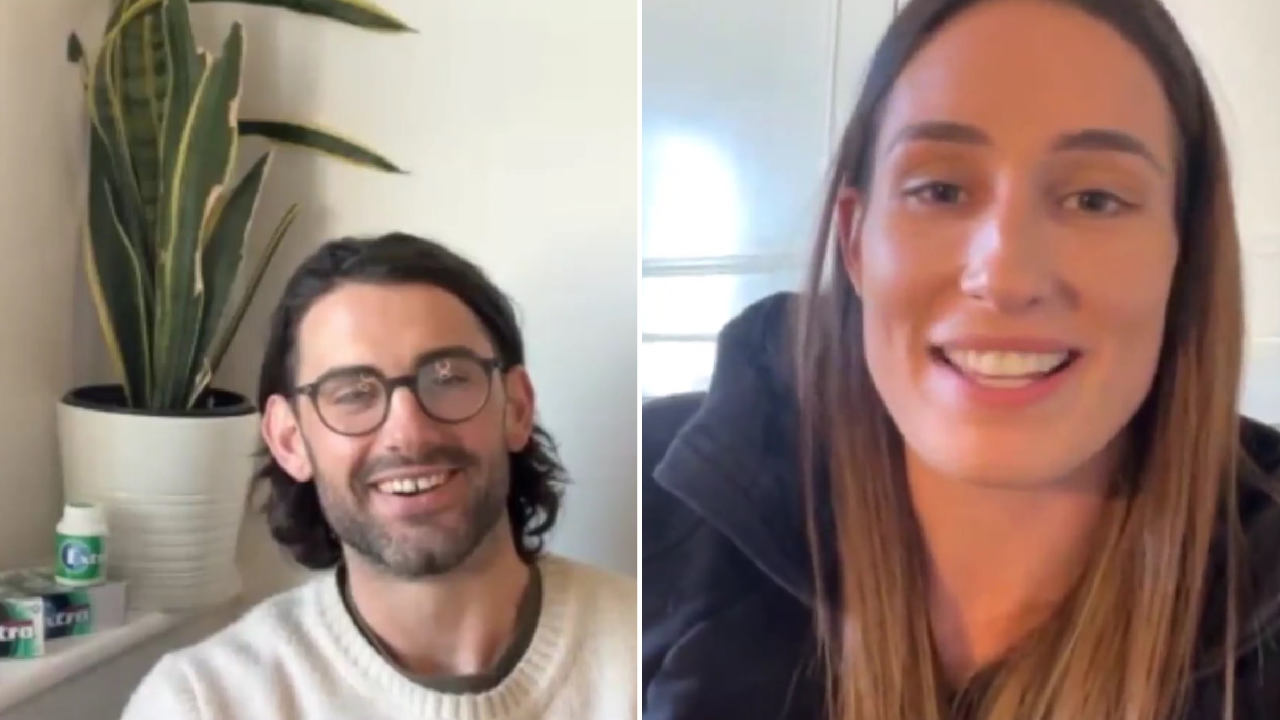
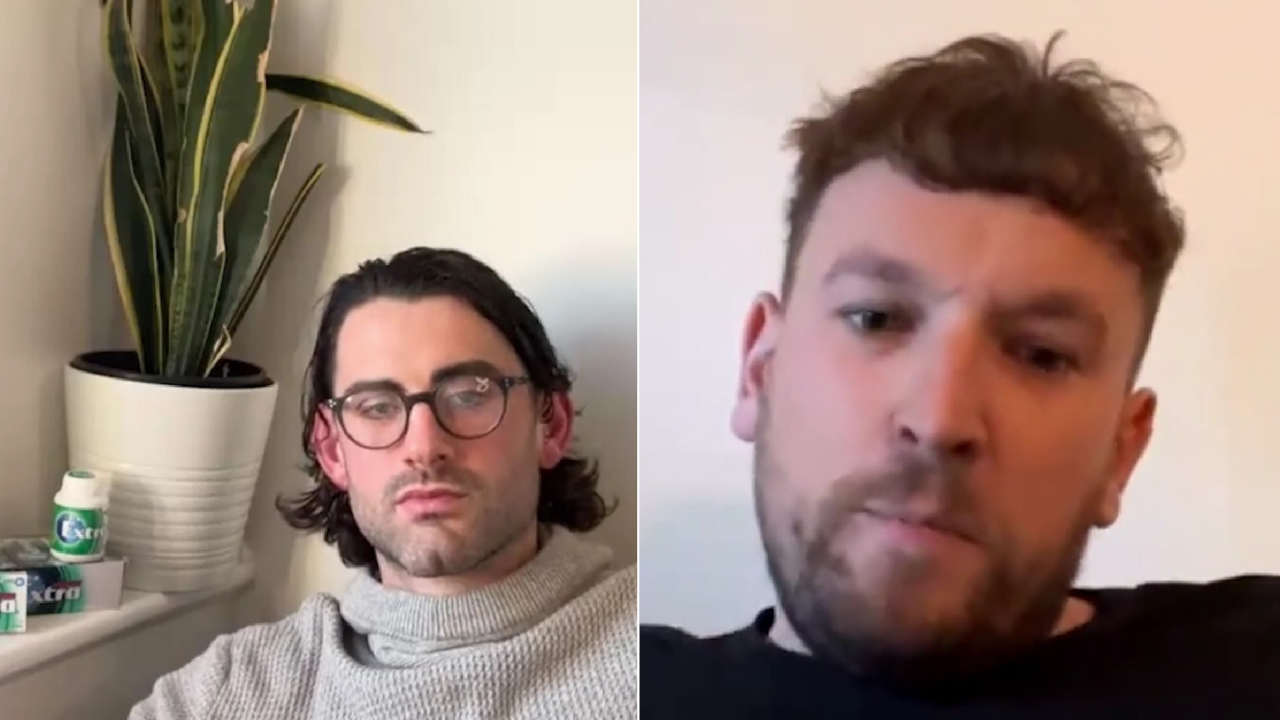

 Load More
Load More